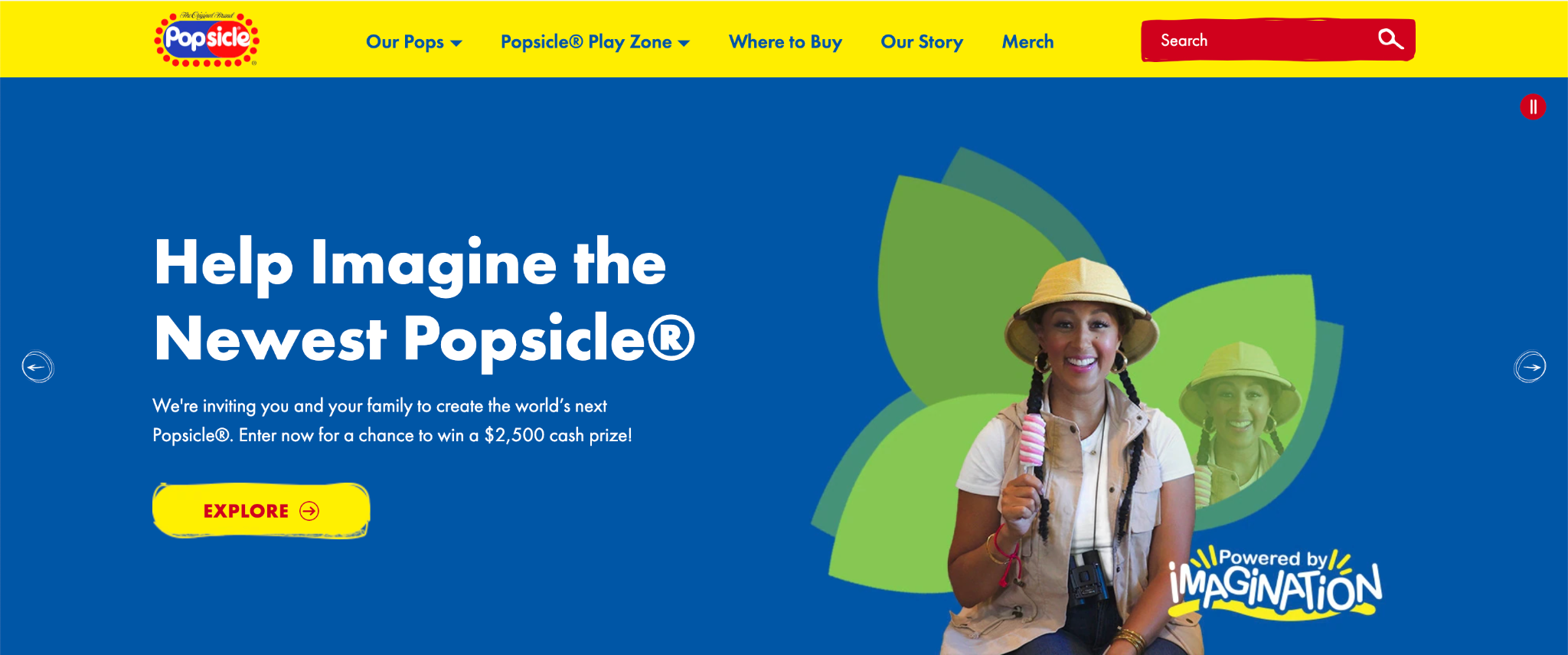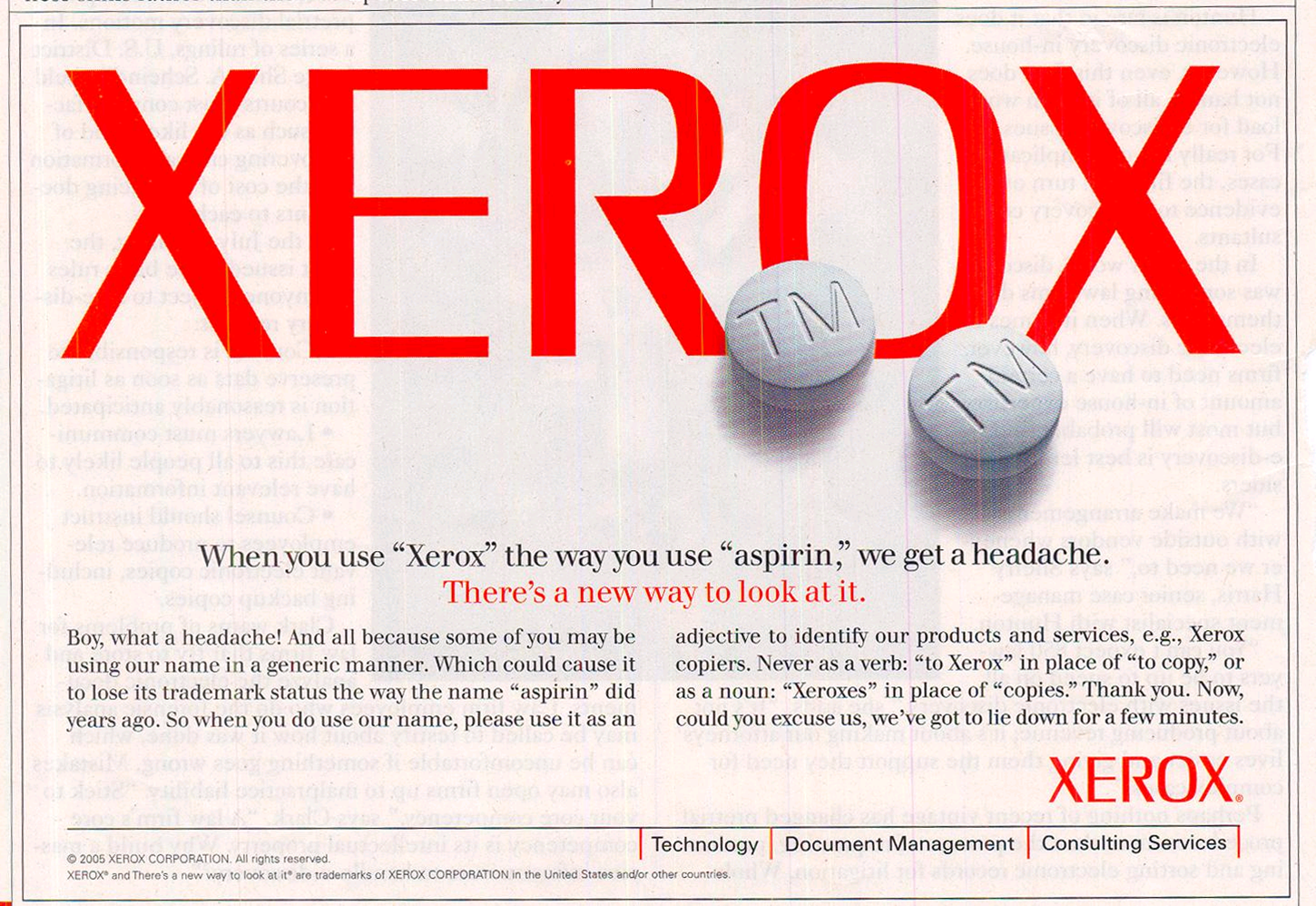Being so relevant that it almost gives your competition an edge.
“Just Google the location.”
“Can you get 15 Xerox done for this file?”
“Come to the shop that’s on the left of the Escalator.”
You’ve probably heard or even used some similar statements before. These are examples of brands that have become a part of everyday conversation. It is almost rare to find people use phrases such as ‘search the internet’, ‘photocopy the document’, or ‘moving stairway’.
“Can you get 15 Xerox done for this file?”
“Come to the shop that’s on the left of the Escalator.”
You’ve probably heard or even used some similar statements before. These are examples of brands that have become a part of everyday conversation. It is almost rare to find people use phrases such as ‘search the internet’, ‘photocopy the document’, or ‘moving stairway’.
What does it mean for the brand to be a part of everyday vocabulary?
When your company’s product or service reaches its pinnacle of awareness and brand recall, it starts getting used in day-to-day conversations. Your brand name is the first thing people remember when tackling a particular task.
In simpler terms, your brand name becomes an action word from a noun.
What happens when your brand becomes an action word?
The transition to becoming a household name can prove to be advantageous to your business. You have a high brand recall, so people must be choosing your product or service, right?
Well, maybe not always.
As your company has grown, it has also attracted competition. Many times, their products and services are very similar to what you offer. It gives the consumer the advantage to choose the brand that suits them the best – it could be because of better service, experience, pricing or just convenience. Now, since the consumers associate your brand with the entire category, the company they choose may be beyond their consideration. It gives an unfair advantage to your competitors to latch on to your brand-building efforts and linch your customers. You may start to see a dip in sales, customer base and maybe even your trademark rights. For example, words like escalator and yo-yo were brand names that lost their trademark and became generic.
Well, maybe not always.
As your company has grown, it has also attracted competition. Many times, their products and services are very similar to what you offer. It gives the consumer the advantage to choose the brand that suits them the best – it could be because of better service, experience, pricing or just convenience. Now, since the consumers associate your brand with the entire category, the company they choose may be beyond their consideration. It gives an unfair advantage to your competitors to latch on to your brand-building efforts and linch your customers. You may start to see a dip in sales, customer base and maybe even your trademark rights. For example, words like escalator and yo-yo were brand names that lost their trademark and became generic.
How to avoid becoming a generic brand?
It’s essential for your business that it becomes a household name. After all, this is what will mark your success in the market. However, as a brand, you need to be careful and ensure that it does not become a victim of genericization. Here are a few things that you can do –
- In all your marketing communications, use your brand name as an adjective and not a verb. For example, Jacuzzi bathtubs or Xerox photocopier machines. It helps distinguish your brand name from the product you provide.
- Build a strong brand identity that helps people distinguish your brand from the product. It may also help if you expand your product line to increase the prominence of your brand name than the product or service.

Image Courtesy: Popsicle.com
- Use advertising to educate your users on the right way to use the brand name. For example, to save itself from getting genericized, Xerox launched a witty campaign in 2003 to educate its audience with slogans like:
When you use ‘Xerox’ the way you use ‘Aspirin,’ we get a headache.

Image Courtesy: Google Image Search
Leveraging digital media, Velcro released this brilliant ad in 2017 to educate its audience -
- Be vigilant of how competitors and media use your trademark.
In conclusion, growth is an indicator of your business’s success. So, in order to continue enjoying the fruits of all that you do, it’s important to concentrate on your marketing communications. The way that the world perceives your image is influenced right from the moment you emerge. Educating your audience and having control over how the media perceives your brand is essential if you want to continue to be a household name and not become generic.
